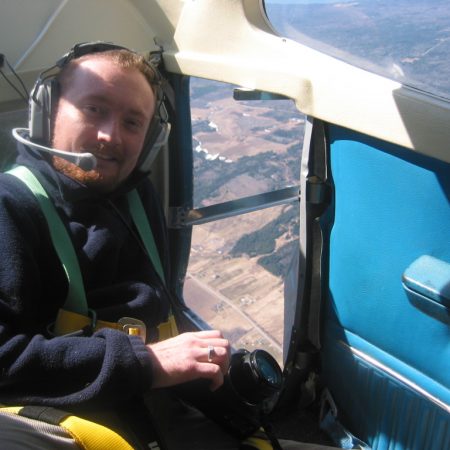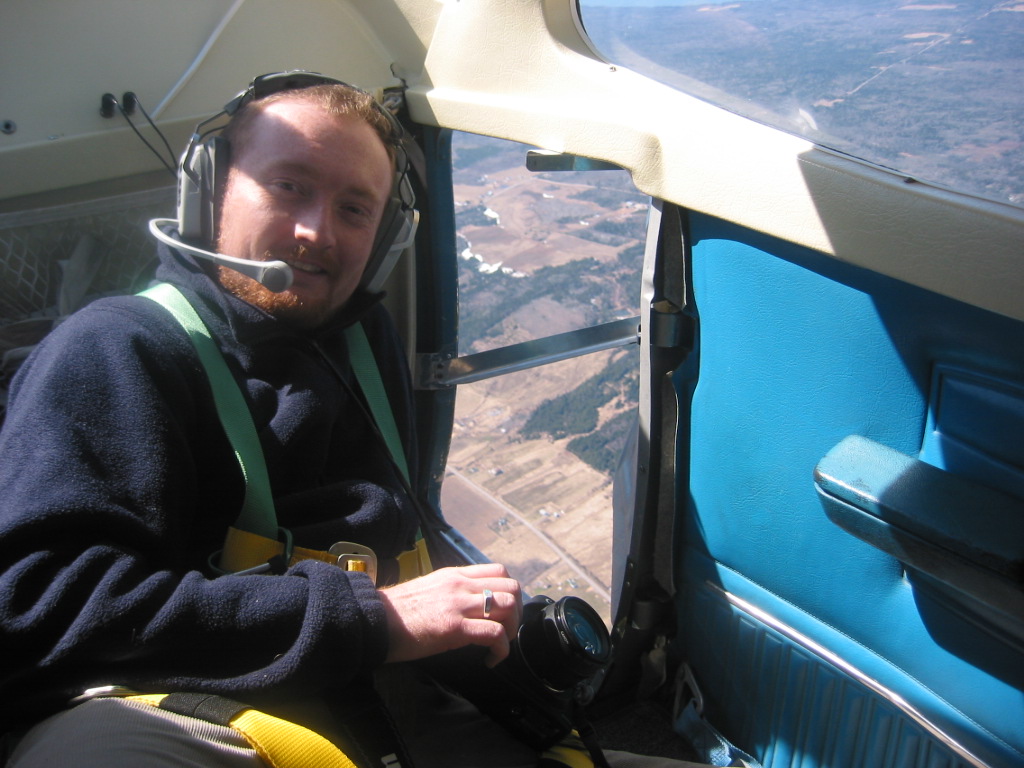Canada Should Host A Location Technology Showcase
There was a time when the Canadian geomatics sector was world-recognized industry leader. Unfortunately, our sector is no longer what it once was. If you’ve read the CGCRT draft strategy you’ll see that it’s big on goals, but not so big on concrete actions to reach those goals. One of their goals is to position Canada as the country for geospatial technologies and innovation. I am proposing one concrete action that could help us reach that goal both at home and on the global stage.
If we want to once again be the global leader in the geospatial sector (and yes I use geomatics and geospatial interchangeably), we first have to act like leaders. We have to think big and not be afraid to beat our own drum…loudly. We have to throw away our Canadian modesty and stop apologizing for our successes. We also have to realize that the biggest innovations in location-based technologies might not be coming out of Canada at the moment.
Picture this: 20,000 people flocking to the location technology event of the world every two years, hosted right here in Canada. I’m proposing that Canada become the top destination for the world’s biggest showcase of location technology. This would not be an academic conference. This would be a global showcase of the world’s leading innovative location technologies. Anyone with location-based technologies, products, or services would be welcome to participate. This would not be just an industry event, but a public event. It would be our Sundance Film Festival. It would be the Olympic Games of location technology. Dare we call it the Global Exposition for Location Technologies?
In Canada, we have many events in the geospatial milieu. These events tend to be academic conferences with very limited markets. Let’s create something bigger. Let’s create an event that encompasses everyone and everything that has a stake in location-based technology. Once we begin regularly hosting an event of this calibre and scale, the benefits would be felt in almost every area that we are currently concerned about.
First, it would bring the global marketplace to Canada, giving our companies a chance to sell and market their products, and build relationships with new partners.
Second, the general public and government leaders in our country would understand what we do and what we contribute not only to Canada, but to the world. The problem of identity and branding could be solved with a global event like this.
Third, it would unify the disparate stakeholders of our sector. The traditional and the newer stakeholders would work collaboratively on this showcase.
 Over the next ten years, location information is going to influence our lives more than ever, and in ways we can’t yet imagine. I can foresee a day when everything has some sort of location-based component to it. Location is getting more and more important every day. If the Canadian geomatics sector doesn’t stand up and demand recognition for our contributions to technological and human progress on the world stage, we will have missed an opportunity. This opportunity won’t come again.
Over the next ten years, location information is going to influence our lives more than ever, and in ways we can’t yet imagine. I can foresee a day when everything has some sort of location-based component to it. Location is getting more and more important every day. If the Canadian geomatics sector doesn’t stand up and demand recognition for our contributions to technological and human progress on the world stage, we will have missed an opportunity. This opportunity won’t come again.
The time is right for an expo of this scale. People will come, and when they do they will think of Canada as the geospatial leader of the modern age. How could they not? We would have positioned ourselves as the place to see the newest and most innovative location-based technologies on the planet.
Of course, so many questions remain, and I don’t have all the answers. The first issue that needs to be addressed is: Who is willing and able to take on this risk? I see the associations taking a major role in this project, but for it to really be a success it needs to be a joint effort across all dimensions of our industry – from private industry, to government, to NGOs.
We can be #1 again, we might just have to get a little creative and take some risks.









Jon. Thank you for your challenge – to think boldly about our future as the Canadian geomatics community. Like you I believe for us to advance we need to take a first step, and this may be it.
And as you said, there are many questions that need to be addressed. But it seems to me the highest priority is leadership.
Like many others I participated in the recent CGCRT workshop and tried to keep up as we marched through legions of strategic goals. Those in the audience with new and important ideas amended the hard work of the CGCRT committee. We prioritized from the revised lists and then when it came time to assign ownership responsibility we all looked around and in the end, at least for the most part, assigned it to the CGCRT committee. Task accomplished, we congratulated ourselves and headed home.
The difficulty is that the CGCRT committee is a group of volunteers who have other jobs to fill, and the life of the committee itself is in question. We have delegated responsibility to a group of people who may or may not continue on a committee that may or may not exist in six months time – hardly a formula for success on a path that will require hard work and perseverance.
In order for us to act boldly – and your proposal is a good way to do that; we must resolve the leadership issue sooner than later. This will require commitment of time and resources from a group who can articulate a vision of the future in a way that captures the imagination of the Canadian geomatics community first and then the attention of the world. If the CGCRT committee in its current (or modified form) is to take the lead, then let’s confirm this soon. If it is appropriate that a new group take over the leadership then, the CGCRT committee needs to focus on an orderly and efficient transition. From there we can roll up our sleeves and get to work.
I for one, think we are up to the challenge.
Jon:
This week, I have been thinking about ‘old thinking’. This coincides with two scenarios. Earlier in the year, Barry Wellar had coordinated a retrospective on AutoCarto that was held in Ottawa. It was fun to reflect on the contributions made from the earlier meeting in the 1980’s. The second scenario relates to the demographics in Nova Scotia. There is considerable concern in this region about the percentage of the population over ‘retirement age’.
Hence this comment. There is a real resource in Canada that can provide the leadership for the type of event that you have envisioned. It is a ‘thinking’ resource of elders who could provide direction and imagination, in collaboration with the new generation. For this to work, we must get rid of the old thinking and replace it with ‘old thinking’.
Bob
The Geomatics industry in Canada should look at events that are being held by other industries and try to mimic their success.
I have attended several conferences over the years (geomatics related and other sciences) in many provinces and my favorite has always been the PDAC Convention & Trade Show (also one that I regularly attend because I get so much from it). When you go to an event like that you know you get your money’s worth and it is one to remember. Geomatics events often seem like social events that are held during the week at a pub, interesting but never memorable. However, there was a geospatial conference in Ottawa earlier this year that sounded like it was going to be a great event that would unite the industry but it turned out just like all the others over the past few years, another chance for academic types to talk. They should have refunded everybody their money 🙁 –
anyways, my point was that if the Canadian Geomatics industry wants the world to notice then it host a kick as event that people will remember for years and want to come back to again after a few years when it is held again in a different host city. Something like the ESRI User confernce in San Diego
Adam
To build on this comment, perhaps as a lead up to the Technology Showcase we could encourage the community to become more involved with existing events. One event that comes to mind is the International Geoscience and Remote Sensing Symposium(IGARSS)/ 35th Canadian Symposium on Remote Sensing which is currently taking place in Quecbec City. Another example is Geomatics Atlantic. I know there are many others.
It can be difficult to find the time and resources to attend these events but they pay back in the discovery of new opportunities, technologies and connections. Lets get more people to these events to foster more opportunities for collaboration between technologies and people!
Hmmm… I do like a bold vision, and a successful event of this magnitude would certainly boost our profile, at home and abroad. For now, I’m looking forward to seeing the Action and Implementation Plan from the CGCRT. The big questions after the event in Ottawa were which actions would be prioritized, and who would take them on. I don’t remember this idea being on the table as a proposed ‘action’, and I think that if we’re buying into the next evolution of the CGCRT as our sector leadership, we should make sure we’re not working at cross-purposes or drawing resources away from the actions prioritized and approved by all those attendees in Ottawa. In order for this showcase to succeed, it would take a huge amount of financial and human resources out of the pool. Before jumping on the bandwagon for a major new initiative like this showcase, I’d like to give the CGCRT a chance to play out – I hope we’ll know by the fall whether all the work we did in Ottawa will amount to a.) a new (funded) governance structure and b.) action on some key initiatives.
That being said, I think there’s something to be said for competitive map-making. If this is the Olympics, let’s try to really showcase the best in the world in a series of categories, not a hall full of redundant municipal accomplishments…
Many great points made here … I myself have also been fortunate enough to attend & present at many conference / events all across Canada in a range of geomatics disciplines over my career. And have found that it was not always the size of event or the location of the event that made it memorable but more the content, people, technology and the event itself. I have been to the PDAC before & must say that it was very impressive but it helps that the inning industry has so much money to spend at such an event, Would the Canadian geomatics industry be able to come together and the same? It is hard enough to get people in our industry to support and participate at regional smaller scale events.
It would be great to have a large scale National event, but the chance of a having a successful & memorable event that would please everyone is highly unlikely. People are so busy these days that it is hard to find enough time to do everything. And although the geomatics industry involves many different disciplines of geographic sciences like GIS, surveying, cartography etc. – they hardly comes together.
Thus why we have so many GIS conferences / events, surveying conferences / events, cartography conferences / events but not very many conferences / events that include all the various geomatics disciplines and do a good job of it.
… “host a kick as event that people will remember for years”
With some leadership, guidance, careful planning and support from the different groups / organizations and regional events (like IGARSS, Geomatics Atlantic & User Conferences’s etc.) then perhaps the Canadian industry could put all differences aside and come together to create a large conference that more people would make time to participate in.
… “the CGCRT committee in its current (or modified form) is to take the lead, then lets confirm this soon.”
But until such event is planned I would agree that we should really start brining together the various geomatics disciplines more often and “… encourage the community to become more involved with existing events”. Then we could build upon that success, after all it is hard to build anything without having a solid foundation.
We should not expect the CGCRT committee to do all this for us but instead we should support the actions suggested and encourage more people in our industry to get involved. And it should not be organized by a company that is more interested making a dollar but a committee that can bring together content, technology and people while not creating a deficit that would harm future events.
I know all of the people who have commented here so far are committed and highly active but imagine if we could all get others who are not currently involved and more active.
“If everyone is moving forward together, then success takes care of itself. ~ Henry Ford”
Jon,
I am not sure this is a priority. If we look at events over the last few years, by and large, few of the are capturing the essence of geomatics in all it’s color. Many events have changed or gone by the wayside in the last few years. Canada used to have an event alternating locations, but it faded away. Other countries in Europe struggle on the same issue. Events are often dominated by individual sectors or businesses. But even the INTERGEO in Europe has steady numbers, remains German focused with a surveying orientation.
My observation is that the CGCRT was thinking very out-of.the-box (am I wrong?). If CGCRT emerges with something truly drastic then that will set the needed spaces and future. On this, I like the idea of Canada truly taking steps to create a spatially oriented society. This notion of leading from the inside-out to the world would show leadership. I think we want to sell more than technology alone – though it is obviously a big part. We are looking toward the next phase, next generation – next step.
Keep up the good work!
As identified a number of great points being made, but three stand out for me: 1) the need for leadership and if the CGCRT committee in its current (or modified form) is to take the lead, then let’s confirm this soon; 2) I’m looking forward to seeing the Action and Implementation Plan from the CGCRT. The big questions after the event in Ottawa were which actions would be prioritized, and who would take them on; and 3) let’s create an event that encompasses everyone and everything that has a stake in location-based technology. Remembering back to the June 9th and 10th Team Canada event the first priority action identified for the CGCRT Steering Committee was to address the governance and leadership concerns with a view to establishing an “umbrella” organization, which may be the CGCRT to both “own” the Strategy and to take on responsibility for the Action and Implementation Plan. This piece of work is underway with plans to make decisions on governance at a workshop planned for the late fall. With respect to action and implementation planning the Working Groups for each Strategic Dimension that folks signed up for at the Team Canada Event have been formed and will be confirming their terms of reference. These Working Groups will be revisiting and continuing the work that has been done on actions to date. If you have not yet joined a Working Group, I think the door is still open to pull up your sleeves, jump in and join the Group you have the most passion for – visit the CGCRT.ca website and leave a message. As to hosting a location technology showcase, the future of this action is in the hands of the Market Working Group.
Evert. Thanks for the orderly sequencing and the refresher on what was decided/committed to at the June workshop. I am looking forward to more details on your first two points. As far as the Marketing Group is concerned, several of us signed up to participate and I for one would welcome additional participation as per a recent reminder from the CGCRT committee.
This is an idea much discussed, and I’ve mulled over so many scenarios… your proposal of Canada as a venue made a light bulb go off…
In the geospatial realm, professional association conferences have been struggling. Sometimes state/provincial events draw more than national events. Internationally, the academic events like FIG and AGIT/GI-Forum are a solid but limited draw (though I was a bit shocked when one of organizers of the GI-Forum last year confided that he has no interest in anything from the west; that in his view all of the development was from the east… that sort of attitude does not foster true international cooperation… but I digress). The Geospatial World events (and the earlier map World Forums) are a wonderful mix of academic and commercial. But any of the above still draws limited attendance. The last time I saw a large, non-vendor geo event in North America was the FIG/ACSM event in DC in 2002; though now the ACSM (American Congress on Surveying and Mapping) has been reborn as a more surveying-centric NSPS; rebuilding and growing but not likely to host a mega-event.
Commercial events, like the recent EsriUC, HxGN, Dimensions, to name a few, have become the default showcases for many and decent if not optimal value for their limnited training funds. Esri draws as much as 15,000 annually from its international pool of end-users. It becomes very difficult for end users with limited travel resources to attend multiple events. There is nothing akin to mega events like CONEXPO-CONAGG or Bauma (serving the construction industries and drawing over 100,000) in the geospatial/geomatics world – except InterGEO…
InterGEO is held in Germany each fall and draws 15,000+. It draws any and all vendors, and there are training opportunities, as well as a chance for professional associations to plan meet-ups. Is there a need for another international event of that kind? Most certainly if it is to serve a broader (but not too shallow) audience. The geo-world has so many new constituencies; the open-source, the pro-sumer, and even the geo-consumer. Could a 20,000+ event be pulled off? Possibly, but it might take an unprecedented feat of cooperation, and for many current players to be willing to give up a little turf (and some would want to play kingpin in planning the event).
Canada makes sense as a venue. There is a welcoming community, folks like Canada (Ok, if they don’t take trailer Park Boys seriously), a tech savvy and forward thinking country (Ok, Ok, the devil is in the details on some of this). Imagine someone asking their boss if they can fly halfway around the world to attend a conference in Vegas (going to get any work done?) or say Vancouver BC? – Quite a bit more acceptable. Other venues might be lower overhead, but many do not (Geospatial World was in Geneva…yeesh!)
The recent CGCRT event showed great ideas; if the same ideas could be the cornerstone, or theme, or goal of the event – that would make folks feel idealistic about it. But the other element needed would have to be massive participation by industry; like at InterGEO. Could they all agree to play nice in the same sandbox? It is not unprecedented.
An intriguing idea… If some forward thinking group could write up a general proposal and shop it around to all of the big geo-bodies, and industry giants, that might be a start…